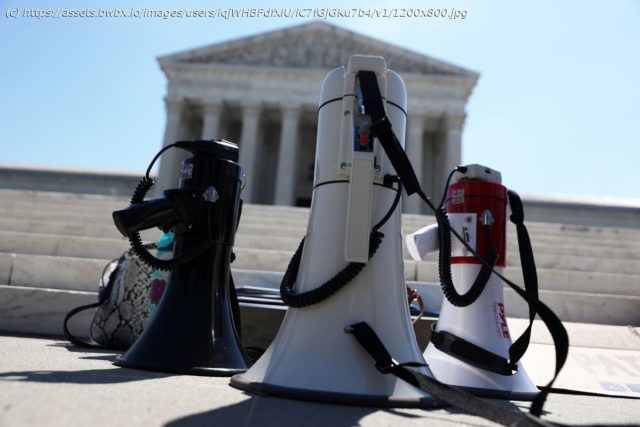In blocking clinic restrictions in Louisiana, the justices have given up all pretense of constitutional authority or democratic legitimacy.
Roe v. Wade polls very well in broad outline, and the Supreme Court has affirmed many times its basic holding that abortion must be legal. Yet it still has a problem of democratic legitimacy. Chief Justice John Roberts, perhaps inadvertently, highlighted the problem in his controlling opinion in the court’s latest abortion case.
In our form of government, the people are supposed to be the ultimate earthly source of authority. A judicial power to set aside laws that conflict with the Constitution need not undermine this truth. The courts in such a case are giving priority to the people’s permanent will, expressed in the constitutional provisions that supermajorities of them ratified, over the transient will of majorities. (We should pause a moment when we label the courts “countermajoritarian.”)
That authority and that democratic legitimacy are lacking when the courts strike down laws on the basis of principles or policies that the people can’t plausibly be said to have ratified. So it is in the case of abortion, the alleged right to which cannot be found in the text, original understanding, structure, history, or purpose of the Constitution.
“An exercise in raw judicial power” is what Justice Byron White, a John F. Kennedy appointee, called it in his Roe v. Wade dissent. John Hart Ely, a legal scholar who favored legal abortion, saw the defects of Roe right away, writing shortly after it was handed down in 1973, “It is bad because it is bad constitutional law, or rather because it is not constitutional law and gives almost no sense of an obligation to try to be.”
Roe’s weakness haunted Planned Parenthood v. Casey in 1992. In that decision, a plurality of the court more or less conceded that the older decision could not be justified as an interpretation of the Constitution, but upheld a modified version of it anyway on the explicit ground that “to overrule under fire” would inflict too much damage on the court’s reputation.






